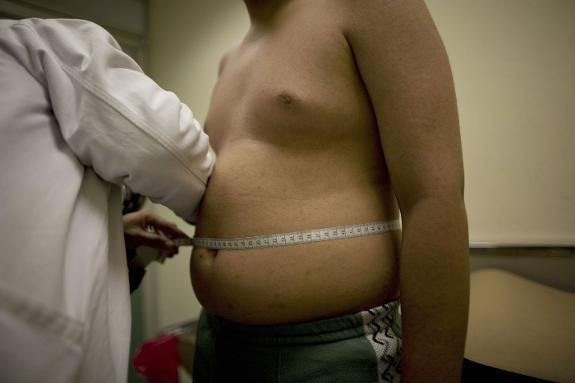

Sections
Highlight

EFE
Friday, 18 January 2019, 13:25
Compartir
By the year 2030, about 80 per cent of men and 55 per cent of women in Spain will suffer from obesity or excess weight, according to a study carried out by researchers at the Hospital del Mar Medical Research Institute (IMIM). The study, which has been published in the Spanish Cardiology Journal, estimates that in 2016 about 24 million adults in Spain were overweight, which is 70 per cent of men and 50 per cent of women over the age of 16.
of men and 50% of women over the age of 16 were considered overweight or obese in 2016.
of adult men and 55% of women are expected to suffer from excess weight or obesity in 2030.
of the Spanish health budget was spent on treating illness associated with excess weight in 2016
euros will be the cost of healthcare in 2030 if the situation continues as at present
Their report warns that if the present trend continues, in 2030 the figure will be three million higher. It also points out that whereas in 2016 the direct cost to the health system in attending to health problems caused by excess weight was 1.95 billion euros, if things continue as they are then it will rise to over three billion euros in the next 12 years.
The study was drawn up from about 50 articles analysing the data of over 300,000 people, which enabled the researchers to follow the evolution of the prevalence of excess weight and obesity in Spain between 1987 and 2014, and to estimate figures up to 2030.
According to the study, in 2016 in Spain there were 24 million cases of excess weight in adults: 70 per cent of men and half of women; that was three million people more than a decade earlier. If this trend continues, the researchers expect the figure to rise above 27 million people in 2030, affecting 80 per cent of men and 55 per cent of women in this age group.
Álvaro Hernáez, one of the researchers, says this is what is happening all over Europe, "a line of moderate growth in the prevalence of excess weight in the adult population".
The researchers have calculated that between 1987 and 2014 there was an annual increase of excess weight of 0.28 per cent in men and 0.10 per cent in women, and an increase in obesity of 0.50 per cent in men and 0.25 per cent in women.
Excess weight is measured from BMI, or the body mass index, (the weight in kilos divided by their height in metres squared). An index of between 25 and 30 is considered overweight, and over 30 is obese.
"These people have more possibility of increasing health care costs because of the comorbidities they suffer from, such as cardiovascular illnesses, diabetes or cancer associated with excess weight and obesity," says Hernáez.
According to the study, in 2016 the direct cost was 524 million euros higher than it had been in 2006, at 1.95 billion euros. That figure is two per cent of the health budget in Spain in 2015 (95.72 billion) and seven per cent of the Catalonian government budget for 2017 (over 28 billion euros).
"If the number of cases continues to rise at the same rate, it will go up by 440 million euros each year and total more than 3 billion in 2030," say the researchers.
Jaume Marrugat, principal researcher and director of the IMIM Epidemiology and Public Health Programme, says the study "shows, with a low margin of error, the importance of starting work as soon as possible on reversing and preventing future recurrences of the growing epidemic of excess weight and obesity in our society. It is the only way of reducing the enormous social, health and economic costs which will otherwise emerge in the forthcoming years".
Publicidad
Publicidad
Publicidad
Publicidad
Reporta un error en esta noticia
Necesitas ser suscriptor para poder votar.